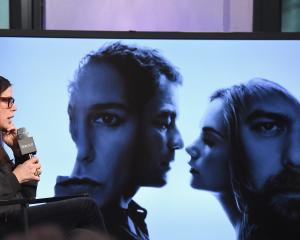It takes a superbly crafted documentary - superbly crafted - to drag this dark and cynical television reviewer around to the views of the environmentally aware.
Because no matter what the fair and decent among us may want to put across, you know it will involve giving up something delicious. For some reason, the environmentally aware never find there is environmental damage being caused by tofu farming, or that garments made from hemp cause cancer, or even a nasty skin rash. Funny, that.
What they do find is that there is something damaging or unethical in things people actually like. Like chocolate. Chocolate makers, palm oil and orangutans spring to mind.
So I approached Three Little Pigs: A Curly Tale with some trepidation, pretty certain that if I did not have to stop eating bacon all together, I would at least have to buy far more expensive bacon. It always works like that. But I shouldn't have worried.
Because Three Little Pigs: A Curly Tale is about the fairest local look at a national and international issue I have seen.
A Curly Tale is made by students at the Otago Centre for Science Communication course in science and natural history film-making, which is taught in association with NHNZ.
Six documentaries will be screened by our very own Channel 9 over three weeks, beginning this Thursday at 7.30pm.
A Curly Tale, by Emily Gordon and George Dawes, is so local it contains some of my family members in a supermarket background shot. It roots the local viewer firmly in Dunedin with an initial shot taking in a hill that looks remarkably like Harbour Cone, followed by a quick look at the sort of windswept, wet and boggy farmland only we can love.
It gathers the views of a remarkably wide range of those involved in the debate over whether sow crates - unfortunate-looking metal cages for mother pigs - should be banned, and whether pigs should be treated a little more pleasantly before we send them to Timaru to get slaughtered.
A Curly Tale takes in the controversy surrounding comedian Mike King, who was the face of New Zealand pork before he was shown the sort of conditions pigs live in, and Green MP Sue Kedgely's attempts to bring about changes in the national Animal Welfare Act.
More importantly for Dunedin people it takes in the views of local farmers Pieter Bloem and Ian and Linda McCallum-Jackson, as all involved grapple to find an answer to what is clearly an international concern.
Importantly, A Curly Tale does not preach, and keeps a light-hearted tone throughout, mainly because of the documentary's sound-track.
Also importantly, it presents the problem, allows both sides to have their say, and leaves it up to the viewer to decide.
Most importantly, it is a great story, entertainingly told. A+.





